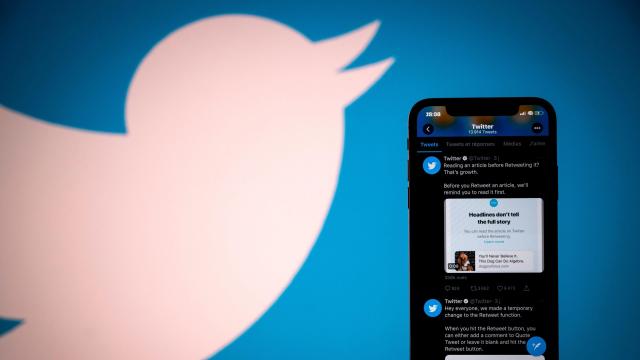The best way to minimise the foul and feral amount of hate speech currently polluting Twitter is apparently to just nicely ask people to stop, according to new research published by Cambridge University Press.
According to researchers who published their findings on behalf of New York University’s Centre for Social Media and Politics, targeted warnings about the consequences of a user’s behaviour can be useful in mitigating future hate speech on the platform, so long as they’re directed at the right accounts and worded gently enough. In science, this is known as shame, and it can be a useful cudgel for getting people to change their behaviour both in and outside of the laboratory.
Although the findings aren’t presented as a magic bullet solution, and more research on the efficacy of such alerts is likely needed, the study’s authors believe that the results represent a viable model for potentially reducing the harms wrought by hate speech on Twitter moving forward.
“Our results show that only one warning tweet sent by an account with no more than 100 followers can decrease the ratio of tweets with hateful language by up to 10%,” the authors conclude.
Fascinatingly, the authors found that the “more politely phrased” their tweets were, the more they made headway with users, with those missives generally garnering a decrease in hate speech of up to 20 per cent.
In the experiment, researchers identified and isolated users whose accounts were at risk of being suspended for running afoul of Twitter’s hate speech guidelines who also followed at least one other account that had recently been suspended for the same offence. The researchers then set up their own accounts created with the express intention of warning those users about the impacts of their language, informing them that it had the potential to get them suspended and that at least one account they were following had recently befallen a similar fate.
“The user @account you follow was suspended, and I suspect this was because of hateful language,” reads an example of one such message that was shared in the research findings. “If you continue to use hate speech, you might get suspended temporarily.”
It turns out that when people experience consequences to their actions, it can sometimes have the effect of embarrassing them, which can in turn have the effect of influencing them to change their behaviour. At press time researchers were also exploring the efficacy of sending you gently worded messages telling you to stop having two glasses of wine and then liking every tweet on your timeline as if it was written just for you.
